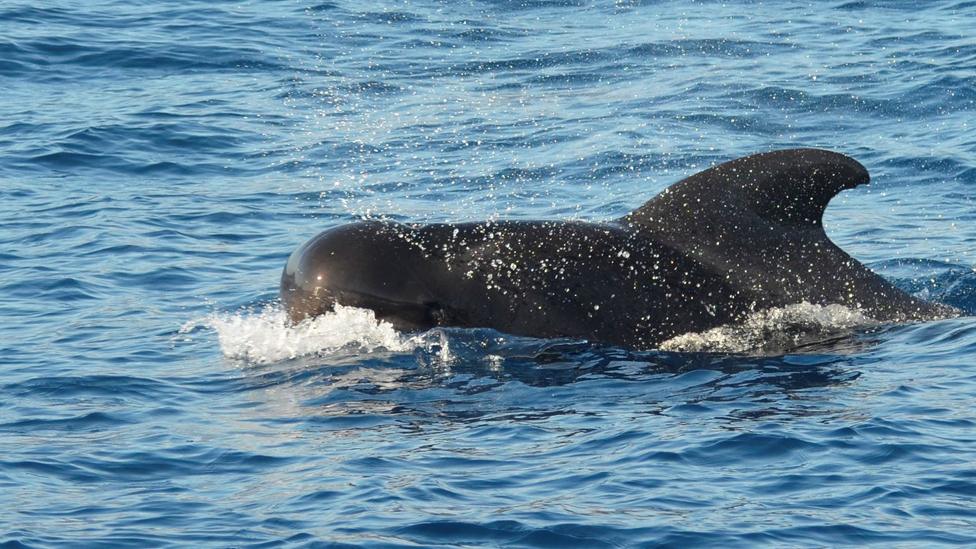Littlestone: Warning to stay away from dead whale on beach
- Published
The whale is believed to be a male humpback which died at sea, experts said
Holidaymakers and residents have been warned to stay away from a dead whale that has washed up on a beach.
Coastguards in Kent were first alerted to the dead mammal at St Mary's Bay, near Littlestone, on Thursday afternoon. Experts have identified it as a humpback whale.
Folkestone and Hythe District Council said it was in the process of organising the creature's removal.
Coastguard teams are providing safety cover on the beach to keep people away.
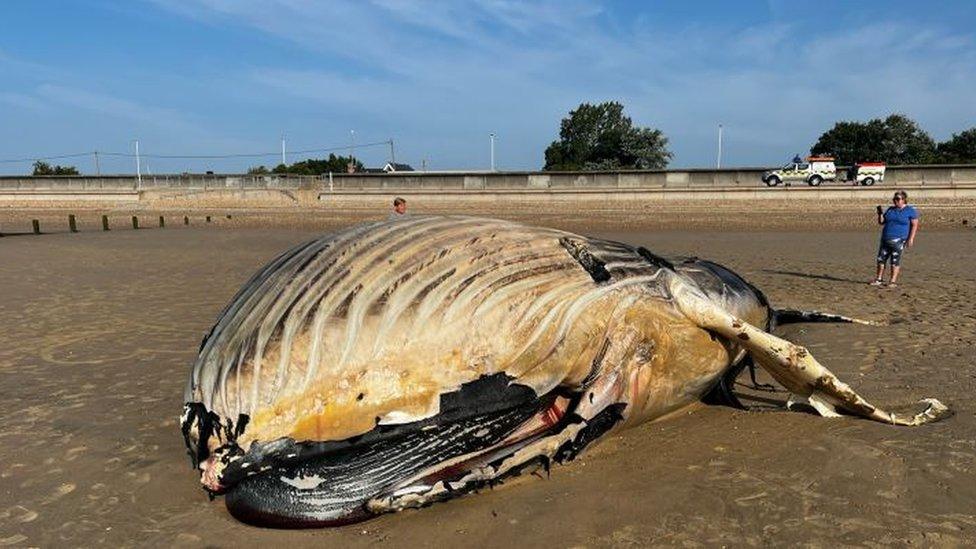
The dead whale washed up on St Mary's Bay beach
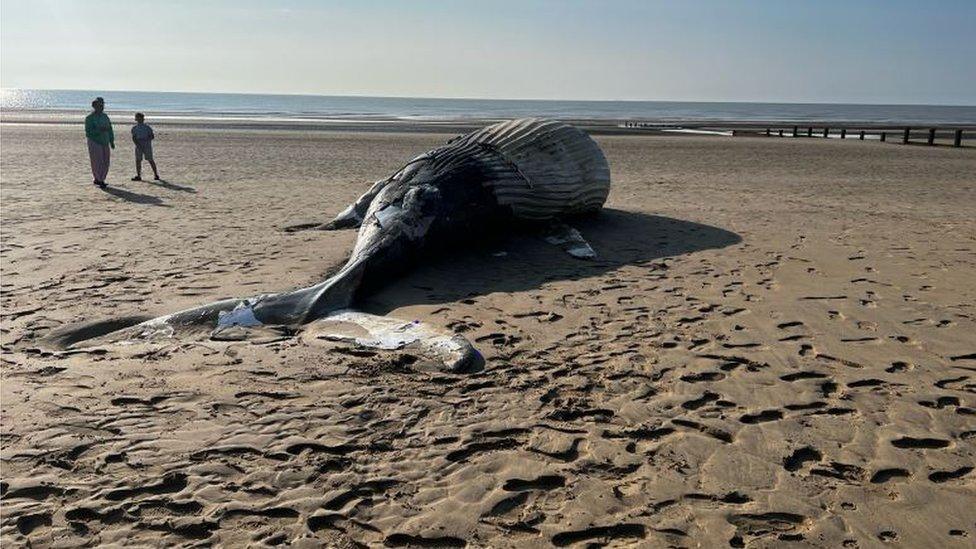
Romney Marsh coastguard rescue team are providing safety cover on the beach
A cordon was set up around the whale.
Sonny Spencer, Romney Marsh coastguard, said: "I've never come across anything so large in the water in the eight years I've been doing this job."
Rob Deauville, from the UK Cetacean Strandings Investigation Programme, who has been taking samples at the scene, said: "It is clearly a male whale.
"It almost certainly died some distance away and has decomposed before it came to the beach."
At lunchtime on Friday, dozens of spectators were at the scene taking photos and sitting on the sea wall.
The whale was also partially covered by the rising tide.
Jennie Cooper, on holiday with her family, said: "The children were just really interested to come and have a look. You don't often see a whale, do you?"

Analysis by Yvette Austin, BBC South East Environment Correspondent
There are whales stranded or washed up around the UK coastline every year.
Humpbacks are more unusual than some other species such as the minke, however humpbacks are turning up more often now because their numbers are on the rise.
This, according to marine scientists, is thanks to the international moratorium on commercial whaling which was signed in Brighton in 1982.
Not all species, but some, including the humpback, are beginning to recover.
It is probable this whale did not die off Kent.
The water off Kent is not its natural habitat, but a humpback was seen in June breaching off the Cornish coast and they are also in the Northern North Sea.
It is thought climate change may affect the distribution of many species, including whales.
There are numerous possible causes of death, from old age and sickness to ship strike and entanglement in fishing gear.
In this case, it is not possible to do a post mortem because the body is too decomposed.

A Folkestone & Hythe District Council spokesperson said: "Residents and visitors are advised to stay away from the dead mammal while investigations and its removal are arranged."
A statement from Kent Police said: "Officers assisted HM Coastguard on the shore near Coast Road, Littlestone, on Friday morning. Officers left the scene shortly after 11:00 BST."

Follow BBC South East on Facebook, external, on Twitter, external, and on Instagram, external. Send your story ideas to southeasttoday@bbc.co.uk, external.
Related topics
- Published20 July 2023
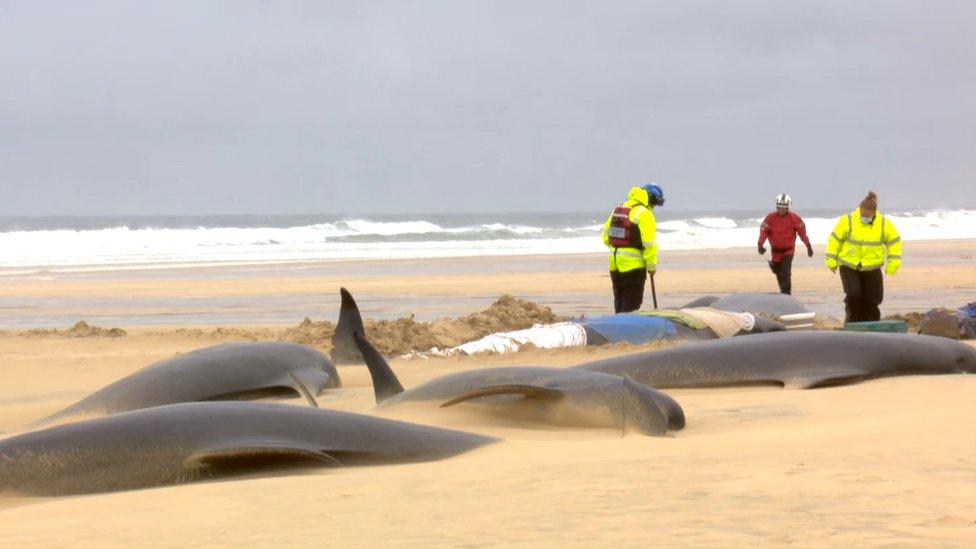
- Published17 July 2023
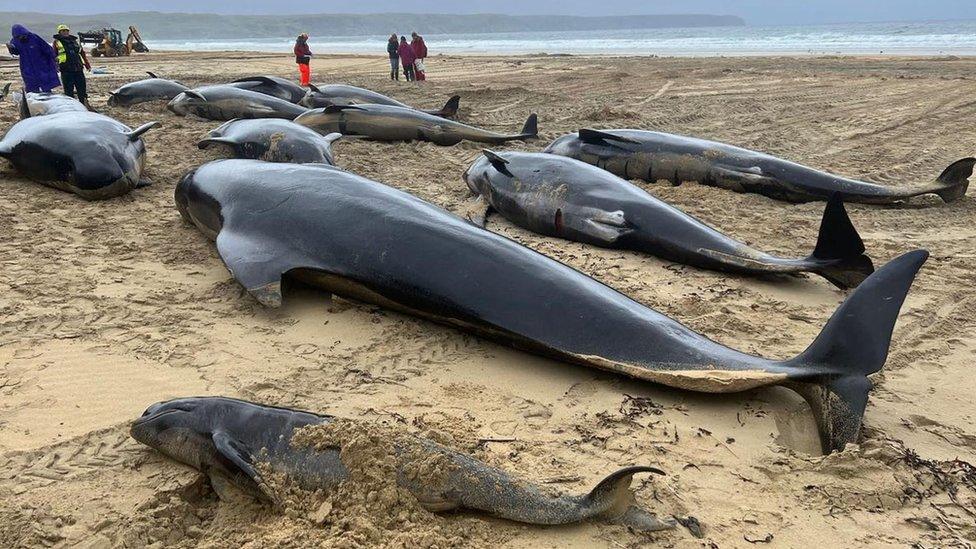
- Published17 July 2023
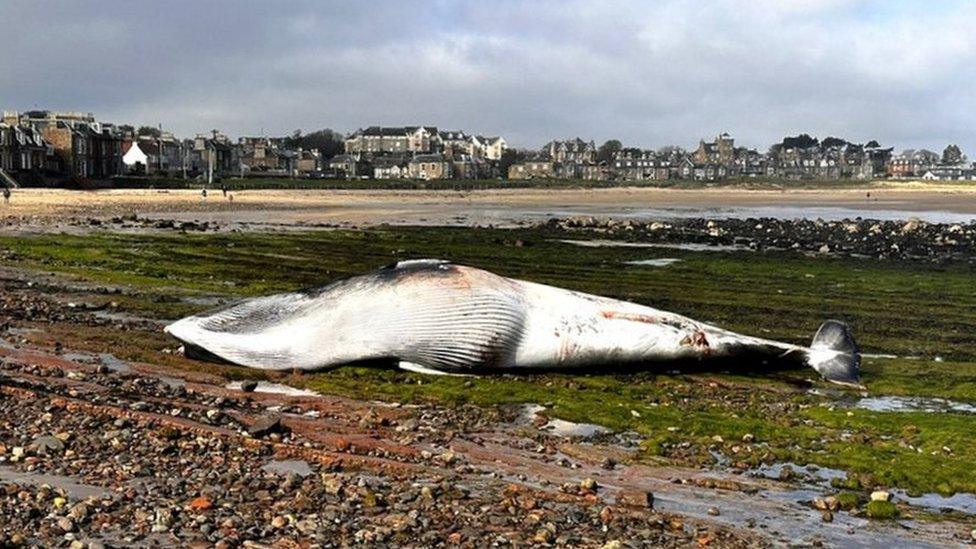
- Published27 January 2023
